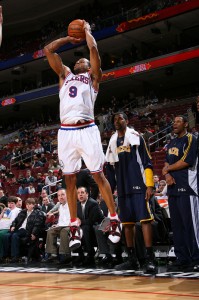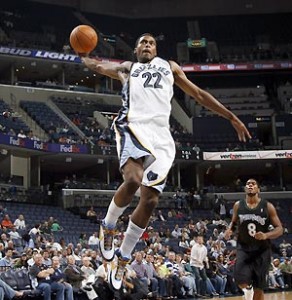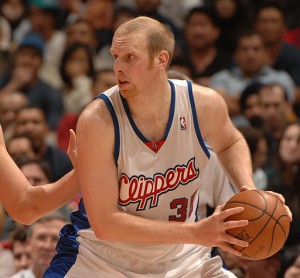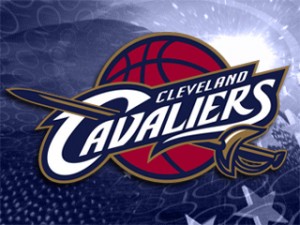Last week, before the news of child sexual abuse at Penn State University rocked the sports world, the newswire was abuzz with another story. It had been rumored that certain circumstances in the NBA labor negotiations were causing current NBA players to see their childhood idol and proverbial hero, Michael Jeffrey Jordan, in an entirely different and negative light. Much of the subsequent conversation surrounding this topic was sparked by a column written by Jason Whitlock for Fox Sports, labeling “His Airness” as a “sellout” for being the “hard-line front man” for NBA ownership’s eagerness to roll back the amount of revenue shared with the players on a yearly basis.
Jason Whitlock calls “MJ’s” stance the “ultimate betrayal” due to the fact that the league is now filled with young, Black players who grew up worshipping Jordan and purchasing his overpriced shoes and apparel, ultimately helping to make him and his brand the financial titans they are today. He thinks Michael Jordan is betraying the same players’ union that went to bat for him and forced the Bulls to pay him $30 million per, in his final two seasons in Chicago.
Though all the aforementioned information is indeed fact, there is one huge flaw in this overall line of thinking. Michael Jordan is no longer an NBA player. He is the owner of an NBA franchise. On behalf of that franchise, Jordan has recently been engaged in negotiations where he’s sat on the other side of the table from the players. Michael Jordan is no longer obligated, nor would it be intelligent for him to think along the lines of, or fight for the wants/needs of NBA players. He is majority owner of the small-market Charlotte Bobcats; a team that has struggled in the standings as well as in the stands. The team’s average attendance last season was 15,846, leaving 16.9% of Time Warner Cable Arena’s seats empty on a nightly basis. The team does not have a transcendent superstar, nor could they afford to keep one succeeding the years of a rookie contract, if they were lucky enough to acquire one in the draft in the first place. His team also resides in a city that has once already failed as an NBA market, losing its first NBA franchise to New Orleans. The franchise has been losing money since the moment Jordan purchased it from BET founder Bob Johnson in February of 2010.
So why is it again that Jason Whitlock, NBA players, or anyone else with interest in this story, thinks that Michael Jordan should go out of his way to be the voice of the NBA player in these negotiations, to the detriment of his business? I don’t think anyone should be labeled a sellout for giving a damn about their bottom-line as a business owner. The current economic landscape of the NBA is not beneficial for many owners of small market franchises. So why shouldn’t they fight to change it? Why is there a growing sentiment that Michael Jordan owes the current crop of NBA players anything?
This isn’t the first time Michael Jordan’s name has been synonymous with the term “sellout”. Jordan has never been of similar pedigree of socially-conscious superstar athletes of the past, such as Muhammad Ali, Jim Brown, Kareem Abdul-Jabbar, Bill Russell, Jackie Robinson, etc. He has always garnered criticism for never lending his name or using his power, influence, or iconic status to get on the front lines of any pressing social issues. So, if social activism is what you look for in your influential, superstar athletes, call him a sellout for that. You’d still probably be toeing that fine line of ignorance, but at least the sentiment would be somewhat understandable to at least a certain rational portion of the population. But to imply…or to flat out say that a business owner is a sellout for looking out for the best interest of his business, is absolutely ridiculous, in my opinion.
I attribute this line of thinking to the overwhelming “employee mentality” prevalent in our society. Everyone wants to walk around calling themselves “bosses” but think in a manner opposing everything a boss stands for. I often hear fans sing cries of empathy for athletes while lauding the position of ownership in sports. No one (obviously Jason Whitlock included) puts themselves into the shoes of the men who invest hundreds of millions of dollars into sports franchises. People who live lives content with working for comfortable pay while making the next man rich do not seem to understand the risks involved with investments on this level…or any other level for that matter. They’ve been brainwashed to believe that the person who could potentially get injured on the next play takes all the risks in a labor relationship. But none of the “employee-minded” realize the risk of leveraging a fortune to run a sports franchise. When your biggest work-related investment is a full gas tank or a functional bus pass, I expect you to think this way.
For Jason Whitlock or anyone else to hold these types of expectations of Michael Jordan just because he was once a player is reminiscent of how struggling Black people expected their struggles to be eradicated because Barack Obama got elected president. Michael Jordan is a team owner now and Barack Obama is president of America, not Black America. He would have had to have been elected the president of Zamunda to remotely have a shot at fulfilling those silly expectations.
In actuality, I wish this story wasn’t even about Michael Jordan. I say this because I’m certain that many people will agree with my sentiments, albeit for the wrong reasons. People will agree, not due to any profound business-related points I may have think I’ve made regarding this topic; but simply because negative-speak about “MJ” has been deemed as blasphemy in many circles. Well, this isn’t one of those circles. Michael Jordan has personality flaws, just like the next man. If you’ve ever met your hero in person, outside of a camera-filled setting, then you probably know exactly what I mean. It is also trendy in many circles (especially Black ones) to vehemently oppose anything written by Jason Whitlock. I don’t subscribe to that methodology either. As with any sportswriter or writer in general, each piece is met with the same high level of objectivity and my opinion of that particular piece will be formed as I read it. I don’t allow myself to form an overall opinion of the man based on each of his individual writings. Whitlock has written plenty of material that I have absolutely agreed with, but he has also written plenty that I’ve thought to be utter malarkey (to borrow a term from my sports media colleague, Brandon Pemberton).
So yes, Michael Jordan has made a fortune selling overpriced shoes, sugarless juice, and horsemeat burgers to idol-worshipping, Black, inner city youth. Feel what you will about that fact, but keep in mind that we all had a choice. Yes, Michael could have been more active in the plight of “his people”, but I guess that just wasn’t his thing. Yes, MJ’s “brand” has always been more important to the man than anything that you and I have tried to deem important for him. However, Michael Jordan’s example taught today’s players how to be “brands” in the first place. Without the path that he laid, the Lebrons, the Kobes, the Wades, and the Durants of the world would have never even begun to realize their full earning potential in this league. “MJ” has done more than enough for these players. He doesn’t owe them anything more.






